Nothing is worse than having low self-esteem. How you feel about and what you think about yourself determines how you live your life. Low self-esteem makes you feel horrible about yourself which affects your will and motivation to do anything in life.
You can easily spiral down in the dark pit of negative thinking restricted by your damaging and limiting beliefs. This is why it is crucial to build self-esteem and have a high opinion about who you are and what you are capable of.
Self-esteem is a driving force behind our confidence and how we see and feel about ourselves. It encompasses our sense of value, significance, and self-worth. That’s why learning how to build self-esteem is essential to personal growth and happiness.
Research has shown that over 80% of people struggle with varying levels of low self-esteem. Yet, having a solid sense of self-esteem has the chance to positively impact and powerfully transform every area of your life – from your relationships to your career, from your health and well-being to your fulfillment and levels of success.
A deep feeling of self-esteem is something that needs to grow and be nurtured over time. In this article, I will show you the things you can do right now to learn how to improve self-esteem. Then, you will realize your hidden potential and your self-worth.
Related: 5 Life Changing Habits That Build Self Esteem
What Is Self-Esteem?
While the dictionary defines it as “confidence in one’s own worth or abilities; self-respect,” put simply, self-esteem is the overall sense or feeling you have about your own self-worth or self-value.
Self-confidence, on the other hand, is more about how you feel about your abilities and will vary from situation to situation. You can have great self-esteem (feeling good about yourself overall) but low self-confidence about a particular situation or event (e.g. public speaking). Or, maybe you’ve got great self-confidence in an area (e.g. a sport that you play) but low self-esteem overall.
A strong and solid sense of self-esteem comes from deep within, from a belief in your importance, your value, and your worthiness. The good news is that there are many ways to improve self-esteem, which we will look at below.
Causes Of Low Self-Esteem
Low self-esteem can stem from many areas. It is largely influenced by how other people see and treat us, and our relationships, which is why the influence of our parents has the most significant impact on our self-esteem. Here are some of the most common causes of low self-esteem:
An Unhappy Childhood
Those who grew up with critical, abusive, or neglectful parents are more likely to face challenges with their own self-worth, while those who experienced acceptance, approval, and affection are more likely to have a higher sense of self-value.
Traumatic Experiences
Lower levels of self-esteem can also stem from bad experiences or traumatic events, such as being bullied or being in an emotionally abusive relationship. Essentially, it can stem from anything that has brought up feelings of shame, guilt, or worthlessness.
Experiences of Failure
For some, lower self-esteem is connected to their success and accomplishments, or lack thereof, including experiences of failure, or not achieving goals or expectations.
Negative Self-Talk
Many cases of low self-esteem are perpetuated by negative self-talk. This could be a story that you have created yourself or that someone else created for you long ago that you continue to believe, and it gets in the way of learning how to build self-esteem.
Maybe for you, like for many others, low self-esteem is rooted in your feelings about your appearance or body image. It’s not just about how you look; it’s about how you feel about how you look. We are bombarded with messages from an early age about being too fat, too thin, too short, too tall, or too much of anything, or not enough of something else.
Related: 10 Habits That Cause Low Self Esteem And Depression
What Happens When You Lack Self-Esteem?
Low self-esteem can lead to significant physical and mental health issues, including anxiety, depression, eating disorders, and addiction. In fact, research shows that adolescents who suffered from low self-esteem grew up to have more physical and mental problems, higher rates of criminal convictions, lower earnings, and challenges with long-term unemployment[1].
On the flip side, a strong sense of self-esteem will help you experience greater health and well-being, better relationships, and higher levels of happiness, fulfillment, and success. One study even correlated higher levels of self-esteem with higher earning potential[2].
Assess Your Own Self-Esteem
Individuals with low or compromised self-esteem can see themselves as inadequate, incompetent, and even unlovable. While they often know at a “conscious” level that these things aren’t true, they still feel that way deep within. That’s what makes challenges with self-esteem so tricky; it’s often not about the reality of what is, but the perception of what someone feels.
Those with low self-esteem may appear socially withdrawn or quiet, negative, insecure, indecisive, unhappy, or even angry. They are more likely to find themselves in unhealthy relationships, have a fear of failure, and worry about what others think.
On the flip side, those with high self-esteem, more often than not, feel a strong sense of self-worth and value, feelings of confidence and acceptance. They tend to find themselves in healthy relationships (and ditch the bad ones), take care of themselves, and are more resilient when faced with setbacks, obstacles, and failures. In general, they tend to stand up more for what they believe in and aren’t afraid to speak their minds.
Self-esteem can be measured on a scale of high to low: while too little has its obvious downsides, you can also have too much of a good thing. Those with an overly strong sense of self-esteem may appear cocky, narcissistic, and self-important. A good amount of self-esteem is required for staying motivated in your life’s journey.
Finding the balance of a strong sense self of self-worth and humility is important as we go through life, which is why it’s so important to learn how to build self-esteem the right way.
How To Build Self-Esteem (A Step-By-Step Guide)
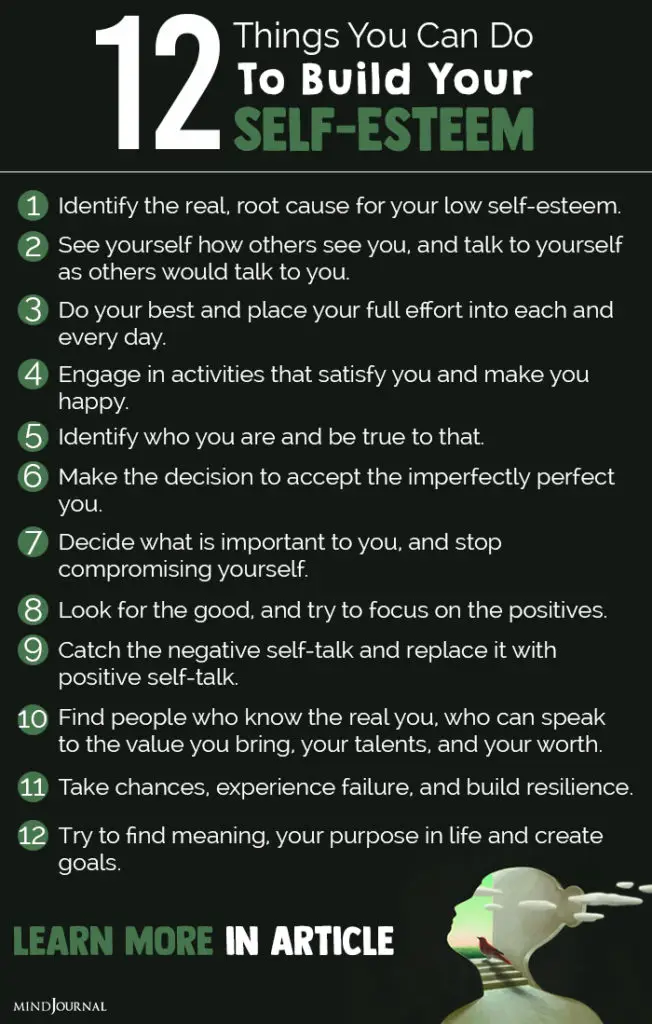
Self-esteem issues are generally found in the gap between who you are and who you think you should be. Paradoxically, most causes of low self-esteem stem from how others see or treat you, yet the solution to increasing your self-esteem is something that needs to come from the inside out, not from the outside in.
Learning how to increase self-esteem is not an easy task. While I wish I could wave a magic wand for you, what I’ve learned is that building and nurturing your self-esteem takes time. However, it is a worthwhile investment. Once you’ve done the work, you’ll reap the many rewards and benefits for a lifetime.
Below are some great strategies to start your journey.
1. Get to the root cause.
Identifying the real, root cause(s) for your low self-esteem is one of the most important things you can do to build it back up.
We named many reasons above. Maybe one of them, in particular, resonated with you. Perhaps your parents said you were “never good enough” or that you wouldn’t amount to anything. I work with clients all the time who share stories of their parents’ behavior and the significant impact it has had on their self-esteem.
Whatever experiences you may have had, and whatever the root issue might be for you, I strongly recommend you get someone to support you through the process to identify and deal with it. Find a counselor, therapist, coach, or someone who is trained in helping uncover and address these traumas, past experiences, and root issues. These folks have proven tools, tactics, and strategies – and best of all, they help you experiment in a safe space.
While you may be able to do a lot of work on your own, my experience is that if you don’t address the root cause, that feeling will creep back in overtime. You can’t run away from the truth, and you can’t band-aid over old wounds. You’ve got to get to the source, which won’t be easy, but if you want to learn how to build self-esteem, it needs to be done.
Related: Self Esteem: The Difference Between Healthy And Impaired Self Esteem
2. See yourself how others see you.
See yourself how others see you, and talk to yourself as others would talk to you. What do I mean by this? Think about the person who loves you the most in this world.
Now, take a moment, zoom out, and imagine you are standing in their shoes and watching through their eyes. Look from their perspective and see yourself as they see you.
What do you notice about you? What would they say to you? What do they love about you? What do they see in you?
3. Do your best.
Simple advice is often the best advice. When you do your best and place your full effort into each and every day, you start to feel better about yourself.
Now, your best might change from day to day, and some days, your best won’t be as good as it was the day before. It’s important to remind yourself that you are doing the best you can with what you have, right now, in that situation, with that time frame, your level of skill or knowledge.
When you know you’ve done your best, you have no regrets and nothing about which to feel bad or guilty. If you do your best and then someone criticizes you, it’s easier to brush off when you know you did the best you could.
I ask my clients (and myself) this question all the time, whether they’re ruminating over something they’ve said, thinking about what they could have done better, or just disappointed about an outcome they had hoped to achieve. Did you do your best? If the answer is yes, then there’s nothing more you can do – until next time.
4. Engage in activities that satisfy you.
The key word here is satisfy. Find things that give you a deep sense of satisfaction, a feeling of fullness and purpose.
Too often we engage in activities or relationships that leave us feeling self-conscious, empty, or terrible about ourselves. It’s time to put more focus, time, and effort to do those things that feel good for your body, mind, and spirit, and to engage in things that make you feel whole and full.
Identify what satisfies you mentally (e.g. solving a big problem or creating something new), emotionally (e.g. hanging out with friends or volunteering), physically (e.g. exercising, eating right, or taking care of your body), and spiritually (e.g. meditation or going to your place of worship).
When you engage in something that makes you feel good and, even more importantly, makes you feel worthwhile, you will experience greater self-esteem.
Related: The Biggest Reason People Struggle With Low Self-Esteem
5. Identify who you are and be true to that.
Self-awareness and a little soul searching are critical to your success in life and key to learning how to build self-esteem. In some cases, lack of self-esteem stems from a lack of knowing the kind of person you truly are and the value you bring. Many of us have spent so much time trying to fit in and please others that we’ve completely lost our sense of self. Spend time paying attention and getting to know yourself. Take time to identify who you are.
Some things to think about include:
- Identifying your strengths and talents.
- Acknowledging your value and worth, and uncovering your passions.
- Understanding your values and what’s important to you.
- Thinking about how you want to serve or contribute to the world.
- Acknowledging your blind spots.
6. Accept yourself.
Make the decision to accept the imperfectly perfect you. Know that regardless of what you have been told, what has occurred, what wrong you have done, or what challenges you have faced, you are enough. You are doing the best you can with what you have.
We all want to be accepted for who we are. But first, we must accept ourselves.
7. Stop compromising yourself.
When you let others push you around, put everyone else’s needs before your own, or cave into what everyone else wants because you don’t want to rock the boat, it lowers your self-esteem. You are putting their needs ahead of yours, and your mind thinks to itself, “I guess I’m not that important.”
I worked with two different clients just last week on this very thing. They were both putting everyone else’s needs ahead of their own, and it was having a significant and negative impact on their health and well-being.
Now, I’m not suggesting you shouldn’t take care of your kids and spouse, meet your work deadlines, or be there for your friends. But you’ve also got to take care of you. We compromise ourselves to fit in, to be loved, and to be acknowledged. However, if you are constantly compromising yourself, you will never truly feel satisfied.
How often do you let what others think of you or need from you dictate your actions or decisions?
If you want to learn how to build self-esteem, be strong, and stand up for yourself. It’s time to identify what you need and want for your life.
Decide what is important to you. Naming these things will give you an inner compass to guide you. Then, identify your boundaries and the non-negotiables in your life. What are you not willing to put up with anymore?
Get clear on these things now, so when the time comes to push back, stand up, or politely say no, you have the back-up and inner guidance to do so.
Related: 6 Negative Words That Cripple Your Self Esteem and Empowering Words To Replace Them With
8. Look for the good.
We tend to find what we are looking for. Put simply, people tend to (often unconsciously) look for things that reinforce what they already believe to be true.
The same goes for how you see yourself. If you believe you are worthless or unlovable, you will find data to back that belief up. However, if you believe you are worthwhile and beautiful, or courageous and strong, you will soon find data to back that up instead.
The challenge with those who suffer from low self-esteem is that they have gotten into a habit of finding what’s wrong. Often, there is a negative message lodged in their subconscious mind. In some cases, they’ve just gotten really good at seeing all their faults and shortcomings.
The easiest way to change what you see is to change what you’re looking for. Catch yourself doing something right.
Try this: Grab a journal, and for the next 21 days, write down 3 things you value, appreciate, or like about yourself. This might include acknowledging your wins or successes, things you are proud of or noticing what you feel good about. While it may feel challenging at first, you’ll soon start to rewire your brain to see more of what’s right and less of what’s wrong.
9. Stop negative self-talk.
Much of your belief systems come from the negative story you are telling yourself. Your mind believes what you tell it, and if the story you are playing (over and over again) in your mind is one of the horrible mistakes you’ve made, that’s what you will continue to reinforce and strengthen through negative thoughts, which makes building confidence very difficult.
Tell yourself you are worthless and incapable; your mind will believe that. Tell yourself you are able and awesome; your mind will believe that, too. Catch the negative self-talk and replace it with positive self-talk today if you want to learn how to build self-esteem.
10. Find your tribe.
Since so much of our self-esteem is influenced by our relationships and how others see and treat us, it’s even more critical that you surround yourself with healthy, uplifting, encouraging, and supportive people.
Find people who know the real you, people who can speak to the value you bring, your talents, and your worth. These are people who can be real with you, sharing the positive and the constructive in an uplifting way.
11. Take chances.
Many great minds have shared that failure has been key to their success, the stepping stone to their greatness, and the catalyst to their growth. You might have heard the stories about Michael Jordan being cut from his varsity basketball team, Oprah Winfrey being told she wasn’t “meant to be on TV,” and Steven Spielberg being rejected for film school not just once, but three times.
Taking chances, experiencing failure, and building resilience is key to learning how to build self-esteem. After all, if you never take a chance, you will never know – and you’ll stay stuck in your story.
Related: 5 Toxic Habits That Kill Your Self Esteem
12. Find meaning and create goals.
As humans, we all need to learn, develop, grow, and contribute. When you are suffering from low self-esteem, this can create a vicious cycle. You don’t feel great about yourself, so you don’t go out there and make stuff happen. Because you’re not being successful, you feel a lack of self-worth.
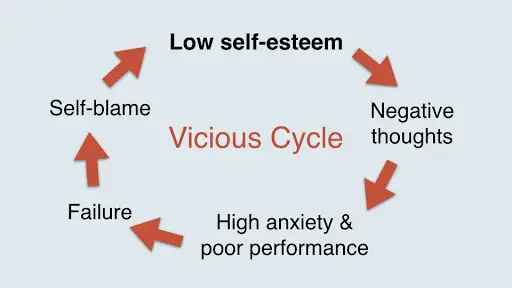
It’s time to break the cycle.
Take steps that allow you to become who you are truly capable of being. Perhaps this is about finding something that gives you meaning, or maybe it’s about the steps you need to take to get from where you are to where you want to be. For example, the act of helping others (contributing, volunteering, and being kind) has shown to not only increase self-esteem, but also happiness, health, and satisfaction[3].
Start with something small and work your way up. Each small success will bring about greater confidence and, ultimately, a stronger sense of self-esteem.
The Bottom Line
The journey to higher self-esteem will be challenging, but the challenge is what builds depth, strength, character, and resilience. If the reward is greater self-esteem, which leads to greater relationships, a better career, increased health and well being, more success, and a greater sense of self-worth, it’s worth it.
While you live in a society where you are constantly bombarded with messages of not being enough and how you could be better, just remember this:
You are deserving of love, happiness, and success. You are imperfectly perfect. It’s not by chance that you have arrived here, on this planet, at this very time, and even if you feel inadequate, unlovable, or unworthy, know that you are none of those things.
You may not be able to believe this yet, but some part of you, deep down inside, knows this to be true.
Now, it’s time to take the steps above and realize it for yourself.
References:
1. Acad. Pediatr.: Characteristics Associated with Low Self-esteem among U.S. Adolescents 2. University of Florida: Positive Self-esteem In Youth Can Pay Big Salary Dividends Later In Life 3. Mental Health Foundation: Kindness Matters guide
Written By Tracy Kennedy Originally Appeared On Lifehack
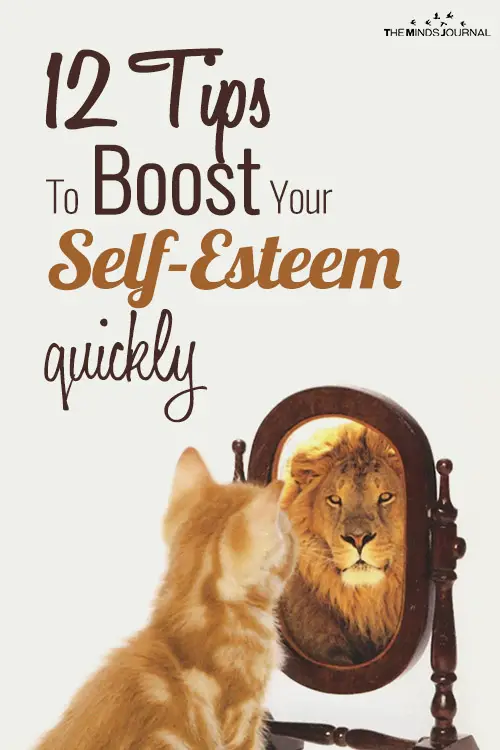
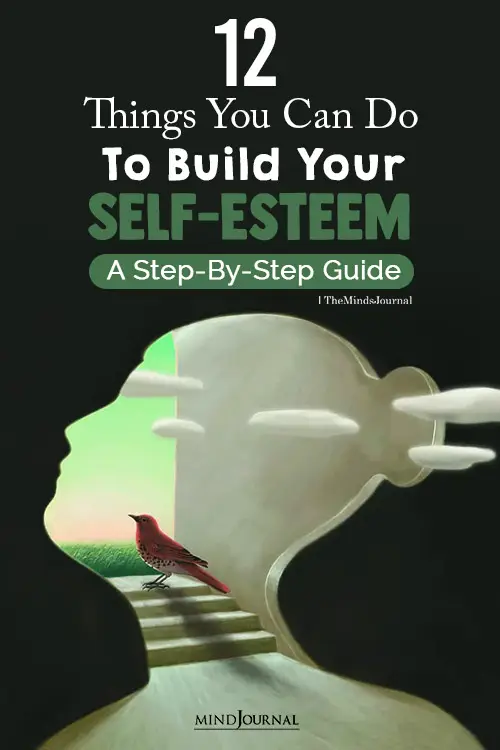
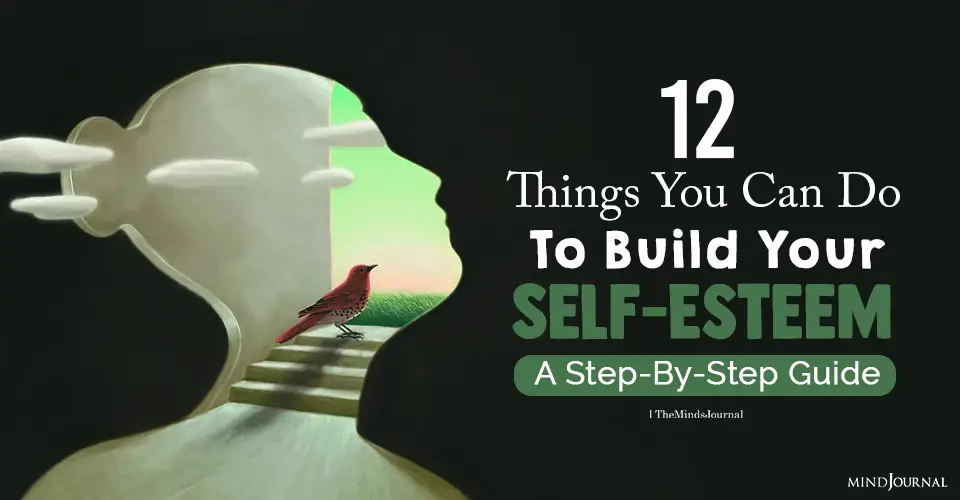







Leave a Reply
You must be logged in to post a comment.